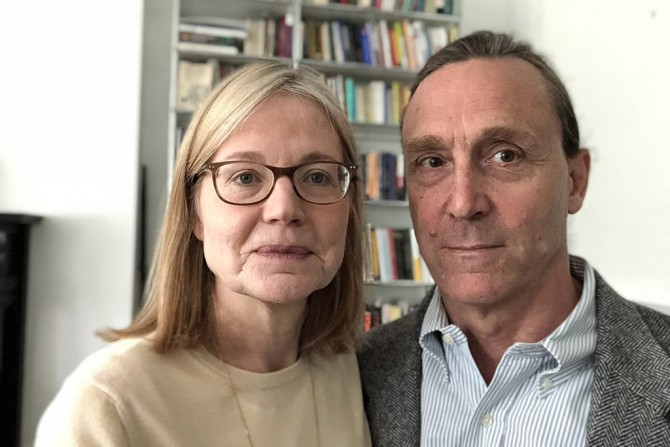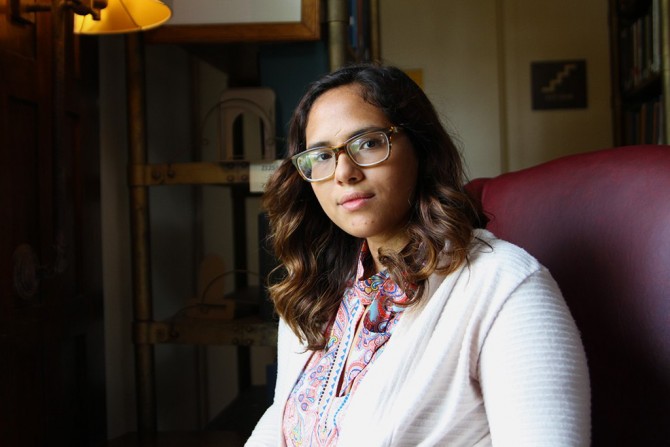Supporters complete endowed scholarship challenge
By Jose Beduya
Launched in January 2017, Cornell’s endowed scholarship challenge ended this April, raising nearly $22 million in endowed scholarships to boost the university’s financial aid and strengthen its commitment to “… any person … any study.”
“The success of the challenge leaves no doubt in my mind that Cornellians strongly support need-blind admissions and need-based financial aid,” said Jason Locke, the interim vice provost for enrollment, who has oversight of the offices of admissions, financial aid and the registrar.
“Beyond this challenge, I hope many others are inspired to support scholarships today so that we can make a Cornell education accessible to more deserving students,” he added.
Eighty-six supporters established endowed scholarships at the $200,000 level or greater, which the challenge matched on a 1-to-4 basis. Matching funds totaling $5 million – made possible by an unrestricted bequest from Craig Voorhees ’49 – were awarded.
Supporters ranged from foundations to individuals. They include first-generation Cornellians as well as alumni with long family histories at Cornell. Also among them are parents like Jeff and Jody Black, who are not alumni but who see the value of a Cornell education through the eyes of daughter Hallie ’19, a fifth-year architecture major in the College of Architecture, Art and Planning.
“Our daughter is clearly getting an excellent education, and we wanted to boost that excellence and make it available to students with financial need,” Jeff Black explained.
“A good education is key to moving up the socio-economic ladder,” added Jody Black. “There are very talented people out there who opt not to go to college and incur debt, so it’s important that the cost of tuition alone doesn’t drive people away.”
One alumnus of the College of Agriculture and Life Sciences established a scholarship with a first preference for those with great need and extreme vulnerability: undocumented students, including those with Deferred Action for Childhood Arrivals status.
“It’s really unfortunate that, through no fault of their own, these young people are thrown into a very difficult situation,” said the alumnus, who requested anonymity to safeguard the recipients of his foundation’s named scholarship.
For him, scholarships give those in need opportunities to better themselves and to make a difference: “I believe in the goodness of man that they’re going to help others. They will find ways to give back.”
When asked why he made his gift, he quoted Hillel the Elder from the Talmud: “If I am not for myself, then who will be for me? And if I am only for myself, what am I? And if not now, when?”
Because of the challenge match, scholarships have already started helping several students. For two of them, the boost came at just the right time.
A third-year student at the College of Veterinary Medicine, 27-year-old Shelby Wauson, DVM ’19, was expecting her first child last fall when she received a scholarship from the Westminster Kennel Club.
She and her husband had been worrying about living expenses and health insurance for their family. “I had maxed out on my federal loans for the year,” she said.
“Without that scholarship and the child day care grant from Cornell, I don’t know if I would have continued through the year,” added Wauson, who held work-study jobs at Cornell’s Companion Animal Hospital until her son was born.
At the College of Arts and Sciences, Bianca Negrón ’20 was “desperate to manage travel and living expenses” for a semester in Cuba last fall. The Robert K. Estrada Scholarship – established by New York-based lawyer Edward Estrada ’94 in honor of his father – came to her aid.
“With the amazing classes I took in Cuba, I practically wrapped up my Spanish major and did some work for my Latin American studies minor,” said Negrón, a first-generation college student. She is considering a law career in the future, and she is grateful for the support she has received at Cornell.
“I’m in an Ivy League school right now because of scholarships. I was able to go to Cuba because of scholarships,” Negrón said. “They’re more than door-opening, they’re future-opening.”
A version of this story appeared on giving.cornell.edu.
Jose Beduya is a writer for the Division of Alumni Affairs and Development.
Media Contact
Get Cornell news delivered right to your inbox.
Subscribe



